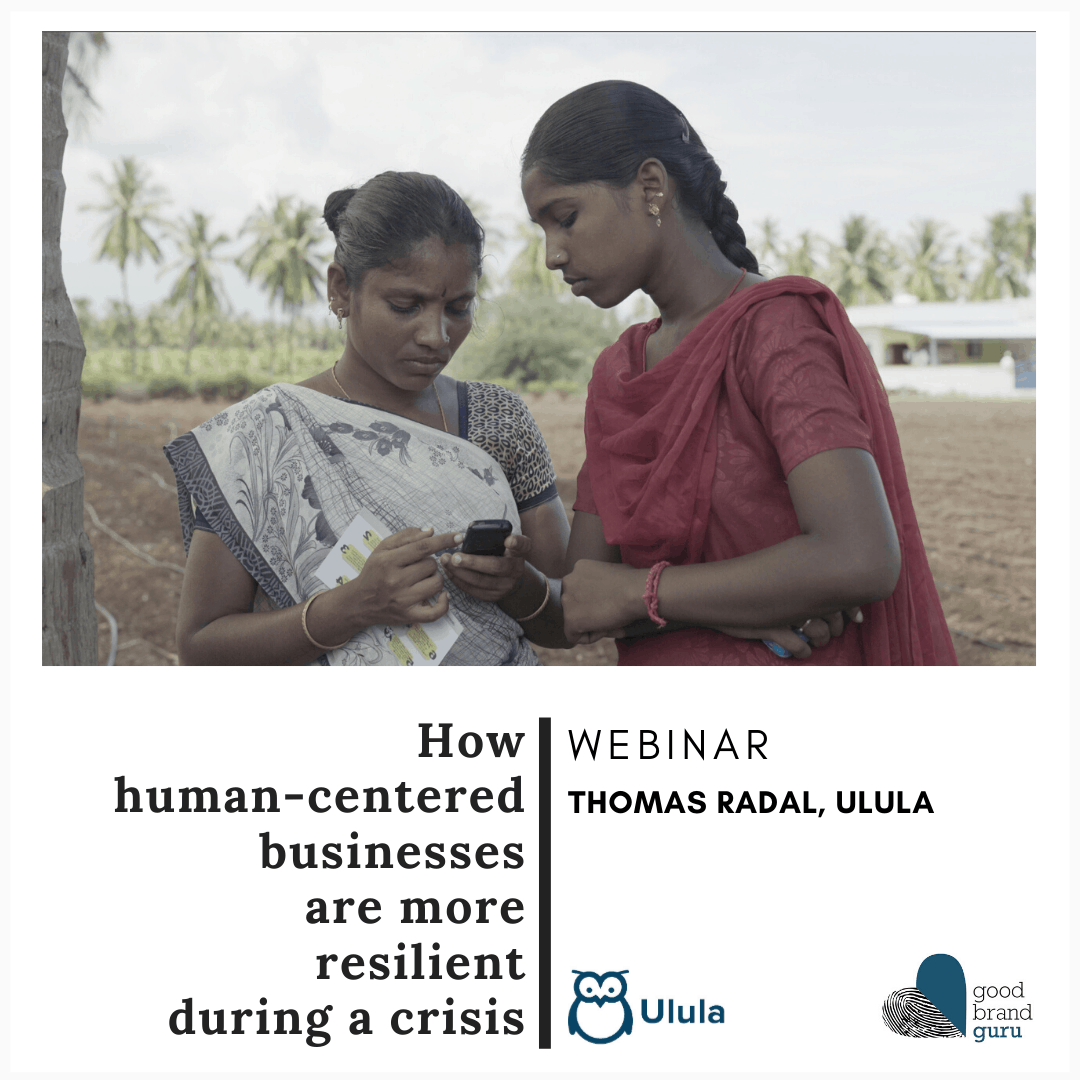On June 3, 2020, Ulula’s Europe Representative, Thomas Radal, hosted a joint webinar with Good Brand Guru. Below is a summary of the contents and a recording of the webinar.
How COVID-19 is impacting human rights
Despite the need to comply with international health and safety guidelines in efforts to maintain operation standards, many companies do not have access to information about the experience of workers on-the-ground. As news cycles regularly expose the human and economic consequences of COVID-19, we are increasingly aware of emerging challenges in fulfilling basic needs and rights of essential workers. International travel restrictions and mandates to physical distance have disrupted traditional ways of assessing suppliers and addressing issues, making audits insufficient. Job insecurity, unpaid work for overtime hours, and lack of health insurance are among the many risks that workers face on a regular basis, which are exacerbated by the coronavirus pandemic.
Putting people first: the resilience challenge
“The conclusion here is really, as businesses, if we want to act to ensure better resilience of the supply chain, we need to work on monitoring the fulfillment of the basic needs of essential workers and communities” – Thomas Radal, Europe Representative at Ulula
Essential workers are simultaneously driving the economy through the current health crisis while shouldering heightened risk. In order to overcome the economic shock caused by the pandemic, businesses must work to identify and address basic needs of essential workers and communities. The term “essential workers” refers to most of the ‘minimum wage workers’ across supply chains. Unfortunately, most of them are also very vulnerable in the current situation. Three broad categories of ‘vulnerable essential workers’ can be identified: women, migrant workers, and low-income individuals, each experiencing a unique set of challenges presented by COVID-19. There are two important factors that help ensure community resilience: unemployment insurance and health insurance.
Practical solutions to help supporting vulnerable and essential workers
Ulula’s agile suite of tools helps give companies a better understanding of the needs of essential workers and communities in real-time, and leverages mobile phones to connect brands and suppliers with direct feedback. These tools can be used independently or together for more powerful results:
- Anonymous worker surveys. These are simple questionnaires that are sent to worker mobile phones and gather feedback on topics such as human rights, labor contracts, remuneration, worker well-being and more. These mobile surveys provide a risk overview in real-time to support fact-based decision-making. Periodic surveys provide continuous assessments and allow brands to track the evolution of risk over time and across production sites.
- Grievance management. This system captures isolated situations of marginal risk in real-time. Workers can report complaints or concerns which appear on real-time dashboards and can be collaboratively addressed at the case level by suppliers, facility managers, brands, and other key stakeholders, while protecting the anonymity of the complainant.
- Mass communication. This tool allows brands to send one-way messages en masse to mobile devices of workers and communities in the form of alerts, health information, and new company policy updates.
Adapting to the new normal
Resilience in a post-covid-19 world requires adapting to a “new normal”. The health crisis has highlighted the vital role of essential workers in propelling our economy forward during turbulent times. Business continuity requires introducing new due diligence systems to regularly re-evaluate impact and leverage, and identifying and supporting essential workers to enable supply chain resilience.
Watch webinar recording below

